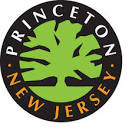By Philip Sean Curran, Staff Writer
Princeton will make it more expensive to cut down trees that fall under municipal protection in an environmental measure Mayor Liz Lempert wants action on.
The Princeton Council is poised to vote in early September on an ordinance to raise the penalties for illegally removing trees and also require more from property owners in return for giving them permission to cut down trees on their land. Princeton is among the New Jersey towns where residents must apply for permits if they want to cut down trees that are municipally regulated, typically depending on their size or other characteristics.
As part of the measure, residents who get a permit will be required to plant more replacement trees; the bigger the tree someone cuts down, the more trees have to be replaced, according to the ordinance.
For instance, to cut down a tree with a trunk diameter of 39 inches or greater, residents would have to provide four trees either on their property or a public place, like a park or right of way. That’s a departure from the current arrangement calling for a one-to-one replacement in the same situation.
If some reason residents cannot accommodate the trees on their property, they also have the option of paying a fee — up to $1,600, with the amount of the fee dependent on the size of the tree being removed. The money would go into the Princeton Shade Tree Trust Reserve, a fund the town uses to plant and maintain trees and shrubs on public land. The fund exists today, but the amount was not disclosed.
Residents, however, cannot simply pay their way out of having to plant trees. The ordinance says they have to plant at least 50 percent of the trees they are required to replace.
Town officials expect to get resistance from residents, including those who live on smaller properties. Yet they contend the changes are necessary to protect Princeton’s tree population, in what has been called an “urban forest.”
“And a lot of people in town have become concerned about the fact that many trees are being cut down as a result of tear downs (of homes) and, in some instances, lots are being pretty much denuded of the trees,” Councilman Bernard P. Miller, liaison to the town Shade Tree Commission, said Monday.
Mayor Lempert was one of those people concerned. Janet Stern, a member of the commission, said Tuesday that the mayor was “getting very worried” about the impact on the tree canopy.
The Shade Tree Commission, a group of volunteers, spent about a year studying what could be done, including looking at what other communities do to protect their tree population.
“And so we came up with what believe is a strengthening of the ordinance and a more clear procedure for both permitting tree removals on private property and also dealing with tree removals that haven’t been permitted and what happens after that,” said Shade Tree commissioner Victoria Airgood on Tuesday.
The council this week moved up a public hearing on the ordinance to Aug.8, as opposed to the originally scheduled Sept.12 council meeting. Mayor Lempert this week indicated she preferred the earlier public hearing date, given that a delay will have implications for the “ecosystem of our community.” A vote to adopt the measure is expected Sept.12.
Officials said the ordinance is less onerous than laws on the books in other communities, as the Princeton measure is seen as striking a middle ground.
In explaining the rationale behind the measure, Ms. Stern said that with the expected loss of many trees because of a tree-killing insect known as the Emerald Ash Borer, the town needed to get “more strict” about tree removal.
“I think we are trying to preserve the (tree) canopy of Princeton,” Ms. Stern said for a town that is a Tree City USA, a designation of the Arbor Day Foundation.
To advocates like her, trees provide shade, lower home cooling costs in the summer, affect the air quality and help maintain the privacy between homes.
“The whole nature of living in Princeton would be radically different if we didn’t have the urban forest that we have,” Ms. Airgood added. “People don’t realize that, they don’t think about it. But if you took this urban forest away, you would have a radically different place.”
Princeton has said it has received around 200 applications to cut down trees so far this year compared to more than 400 applications for 2015. Among other changes, the application fee for a permit will increase to $40 from $25, based on the ordinance.
The measure also gives town arborist Lorraine Konopka 20 business days — a full month — as opposed to 15 calendar days to review an application. The move is intended to allow for a thorough review of applications.
Non-profit organizations are not exempt from the ordinance, according to the town.
The town will not require residents to get a permit to remove a tree that poses a danger “to life or property … ,” the ordinance read in part. û

